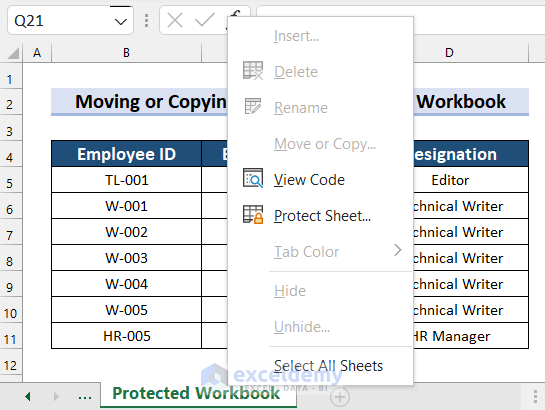Essential Paperwork for a Smooth Title Transfer Process

In the bustling real estate market, the transfer of property titles is a common and critical transaction, whether you're buying your dream home or flipping an investment property. Ensuring all the necessary paperwork for title transfer is in place can make the difference between a smooth process and a legal or financial headache. Understanding the essential paperwork for title transfer is key to navigating through this often complex procedure. Here, we'll guide you through each vital document required and offer insights into best practices for managing these crucial papers.
Understanding Property Title Transfer

Property title transfer refers to the legal process where ownership rights are transferred from one party to another. This transaction not only signifies the change in ownership but also comes with specific legal responsibilities and rights. To ensure a seamless transfer:
- Obtain the original title deed from the current owner.
- Confirm seller’s authority to sell the property.
- Ensure all financial dues related to the property are cleared.
Essential Documents for Property Title Transfer

Title Deed

This is the cornerstone document in any property transfer. The title deed legally proves ownership and includes:
- Details of current ownership.
- Property description and location.
- Past transactions and previous owners.
Transfer Deed

The transfer deed records the actual transfer of the property from the seller to the buyer. This document:
- Needs to be accurately filled with correct legal descriptions of the property.
- Is signed by both parties in the presence of witnesses and possibly notarized.
Proof of Identity

To avoid fraudulent transfers, proof of identity is mandatory:
- Passports, driver’s licenses, or national ID cards are generally accepted.
Seller’s Authority to Sell

Ensuring the seller’s legal right to sell is fundamental:
- Affidavit of ownership or a power of attorney document can confirm the seller’s authority.
Payment Receipts

These documents ensure all financial transactions are accounted for:
- Receipts for all payments made, including deposit, down payments, and final payment.
- Proof of discharge of any mortgages or liens on the property.
Consent of Other Stakeholders

In cases where there are other claimants to the property:
- Written consents from family members, co-owners, or trustees might be required.
Clearance Certificate

This certificate verifies:
- No outstanding property taxes, dues, or government charges are pending.
Legal Requirements

Legal and tax-related documents are crucial:
- Stamp Duty: Payment of stamp duty and the receipt are required.
- Capital Gains Tax Certificate: For the seller to confirm tax liabilities are settled.
🔍 Note: Not all regions require every document listed above. Always verify local regulations for specific requirements.
Managing the Paperwork

Managing the mountain of paperwork for title transfer can be daunting. Here are some strategies to ensure everything goes smoothly:
- Organize: Keep all documents in an orderly manner, either digitally or physically.
- Review: Before signing, review every document to ensure accuracy.
- Legal Consultation: Consult a real estate attorney or conveyancer for expert guidance.
Legal and Regulatory Considerations

Navigating the legal landscape involves:
- Understanding local property laws and requirements.
- Confirming the property’s legal status regarding zoning, restrictions, or court orders.
- Ensuring all parties adhere to national or state regulations.
🔍 Note: Property laws can vary significantly between countries and even states within the same country, making professional legal advice invaluable.
Challenges in the Title Transfer Process

Every property transfer process can encounter unique challenges:
- Disputes over ownership or claims by third parties
- Liens or encumbrances that need to be cleared
- Compliance with government regulations that could delay or halt the transfer
Best Practices for a Successful Transfer

Here are some best practices to keep in mind:
- Be Proactive: Gather all documents early and verify their validity.
- Communicate: Maintain open lines with all parties involved in the transfer.
- Professional Assistance: Hire a title insurance company, attorney, or conveyancer to assist with the process.
Once the title transfer is underway, it's crucial to ensure everything aligns smoothly. By meticulously managing the paperwork, understanding the legal landscape, and staying ahead of potential issues, you set the stage for a successful transaction. The key to navigating title transfers is preparation, organization, and, if needed, expert guidance. This meticulous approach ensures not only the transfer of property but the peaceful enjoyment of the new ownership rights.
What is the purpose of a Title Deed in property transfer?

+
The title deed serves as a legal proof of ownership, detailing the property’s description, location, and ownership history, which is crucial for transferring the property from the seller to the buyer.
Can you perform a title transfer without a real estate attorney?

+
While it’s possible to transfer a title without an attorney, it is highly advisable to consult with one to ensure all legalities are addressed, especially considering the complexity and potential legal ramifications involved.
What happens if a document is missing during the title transfer?
+Missing documents can delay or jeopardize the transfer process. Depending on the document, you might need to obtain replacements, seek legal solutions, or even have the transfer cancelled if the missing document is critical.



